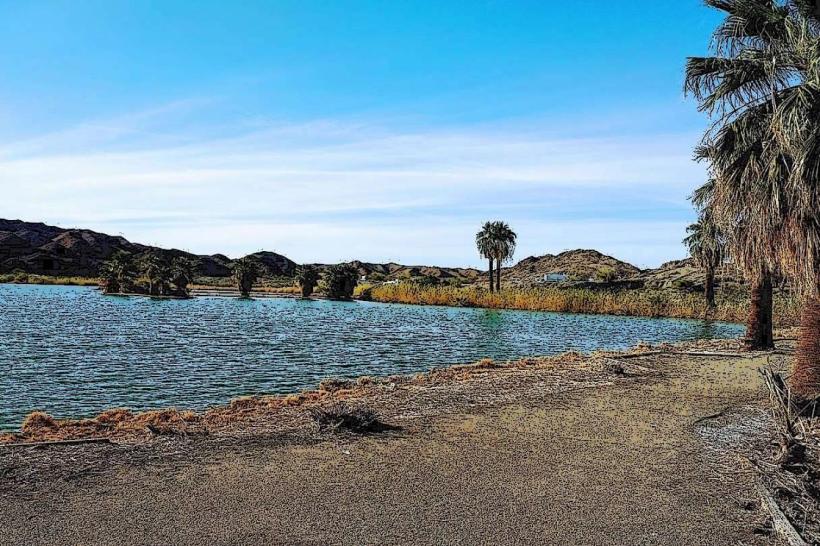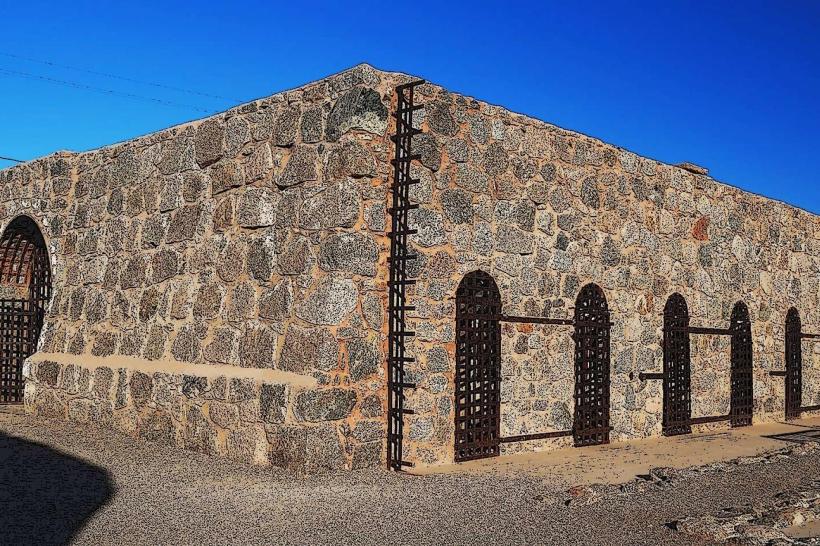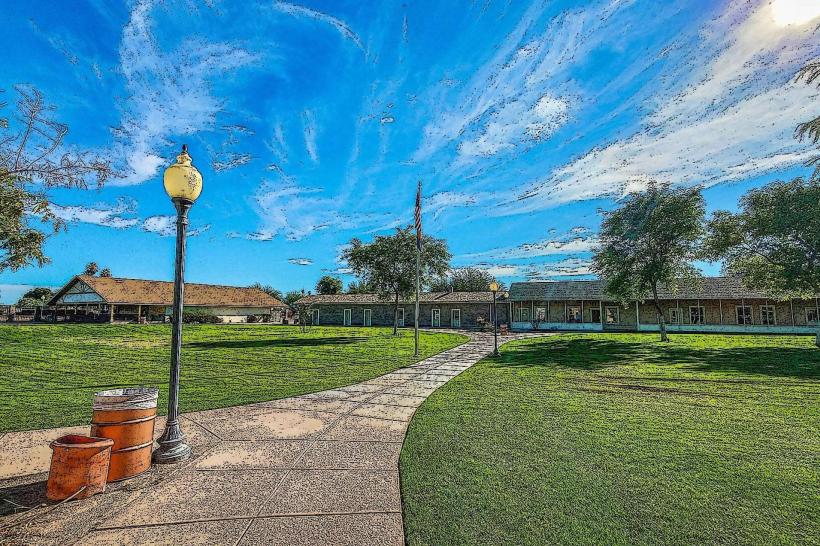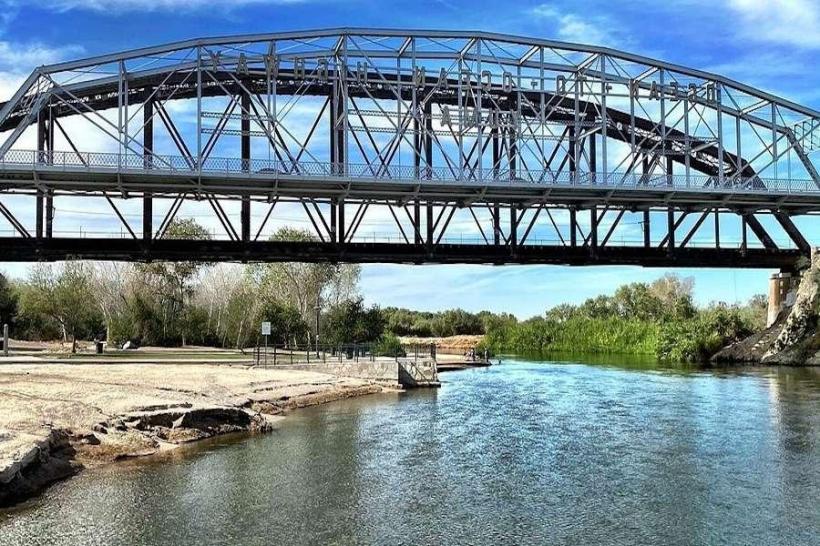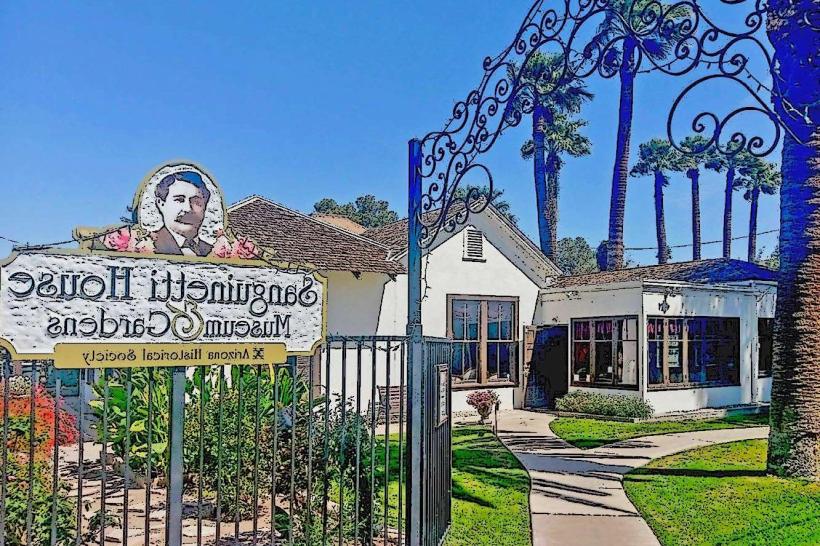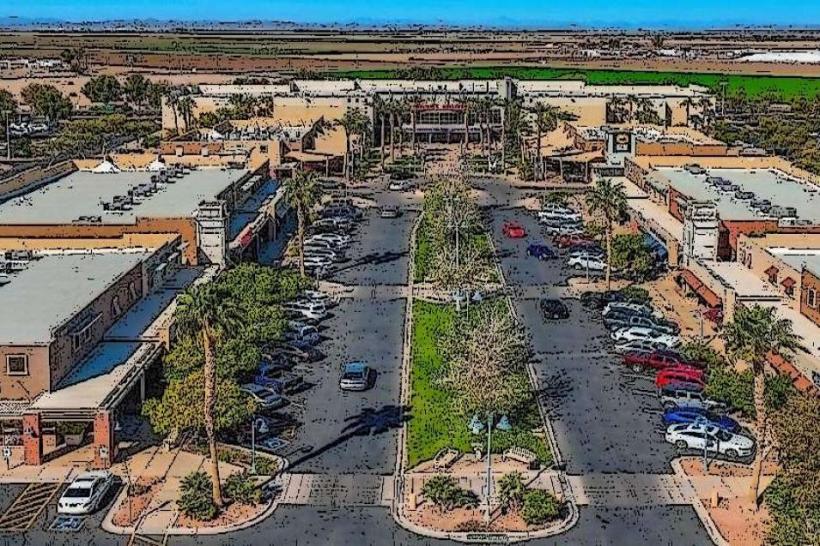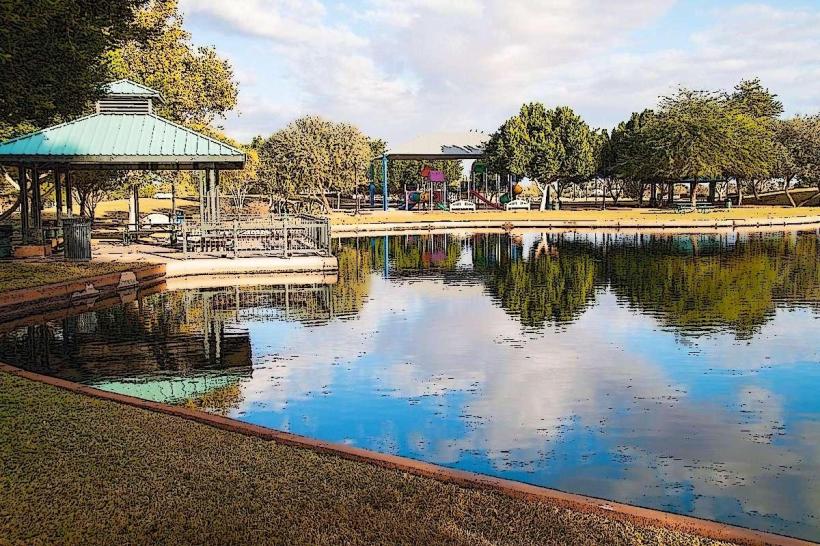Information
Landmark: Kofa National Wildlife RefugeCity: Yuma
Country: USA Arizona
Continent: North America
Kofa National Wildlife Refuge, Yuma, USA Arizona, North America
Kofa National Wildlife Refuge is a vast and rugged protected area located in southwestern Arizona, spanning over 665,000 acres of Sonoran Desert landscape. Established in 1939, the refuge’s primary mission is the conservation of desert bighorn sheep and the preservation of native desert wildlife and habitats. The name "Kofa" originates from the King of Arizona gold mine, a historically significant site within the region.
Geography and Landscape
The refuge’s terrain is varied and dramatic, dominated by the Kofa Mountains and Castle Dome Mountains, with elevations reaching up to 4,877 feet at Signal Peak and 3,788 feet at Castle Dome Peak. These mountain ranges rise sharply from the desert floor, creating diverse habitats that include rocky slopes, desert plains, washes, and canyons. The refuge is predominantly wilderness, with over 80% designated as such, ensuring that its natural environment remains largely undisturbed.
Wildlife and Ecology
Kofa National Wildlife Refuge is known for its abundant and diverse desert wildlife:
Desert Bighorn Sheep: The refuge supports one of the largest and most stable herds of desert bighorn sheep in the southwestern United States. These agile animals thrive in the rocky mountain terrain, using the steep cliffs for refuge from predators and extreme heat.
Sonoran Pronghorn: Although rare and endangered, this swift antelope species occasionally inhabits parts of the refuge, surviving in the open desert areas.
Mammals: Other mammals in the area include mule deer, mountain lions, badgers, and kit foxes, all adapted to the harsh desert climate.
Birds: Birdlife is varied, with species such as golden eagles, white-winged doves, cactus wrens, and several species of hawks and owls commonly observed.
Reptiles: The refuge hosts reptiles typical of the Sonoran Desert, including the venomous western diamondback rattlesnake, the colorful Gila monster, chuckwallas, and various lizards and snakes.
Plants: Vegetation in the refuge is adapted to arid conditions, featuring creosote bushes, palo verde trees, ocotillo, and the rare Kofa Mountain barberry. Notably, Palm Canyon contains a rare grove of native desert fan palms-the only native palm species in Arizona-offering a unique and lush oasis within the desert.
Recreation and Visitor Activities
Kofa National Wildlife Refuge offers visitors several outdoor activities, primarily focused on experiencing the natural desert environment with minimal impact:
Hiking: The most popular hike is the Palm Canyon Trail, which leads through rugged terrain to a picturesque palm oasis nestled in a canyon. The hike showcases the contrast between the harsh desert and the lush palm grove.
Wildlife Viewing and Photography: The refuge is excellent for observing wildlife in its natural habitat, especially desert bighorn sheep and desert-adapted birds and reptiles. Early mornings and late afternoons provide the best opportunities for sightings.
Camping: Primitive camping is allowed with guidelines to protect the environment and wildlife. Campsites must be at least a quarter-mile from water sources, and vehicles are restricted to designated roads.
Hunting: Regulated hunting is permitted during specific seasons for species such as Gambel’s quail, cottontail rabbit, and gray fox, under the supervision of the Arizona Game and Fish Department.
Visitor Information and Access
Location: The refuge is located about 40 miles north of Yuma, Arizona, accessible primarily via U.S. Route 95.
Best Time to Visit: The ideal visiting season is from November through April, when temperatures are milder. Summer months can be extremely hot and potentially dangerous due to desert heat.
Facilities: Facilities are minimal and include some restrooms and water at designated spots. Visitors must come prepared with sufficient water and supplies for desert conditions.
Fees: There are no entrance fees to access Kofa National Wildlife Refuge.
Safety and Regulations
Visitors should adhere to the refuge’s safety guidelines:
Maintain a safe distance from all wildlife; do not attempt to approach or feed animals.
Off-road driving is prohibited; vehicles must stay on marked roads to protect fragile desert ecosystems.
Campfires are allowed only using dead, downed wood collected outside wilderness areas to prevent damage and reduce fire risk.
Be aware of potential hazards from unexploded ordnance, as parts of the refuge were historically used for military training.
Kofa National Wildlife Refuge offers a unique opportunity to explore and appreciate the pristine Sonoran Desert ecosystem. It is an excellent destination for hikers, wildlife enthusiasts, photographers, and anyone seeking solitude and natural beauty in a remote desert wilderness.

